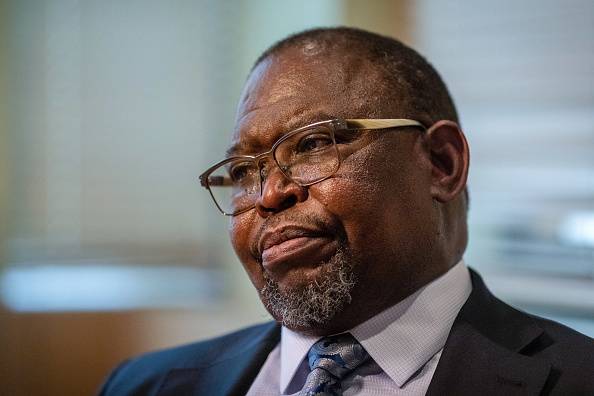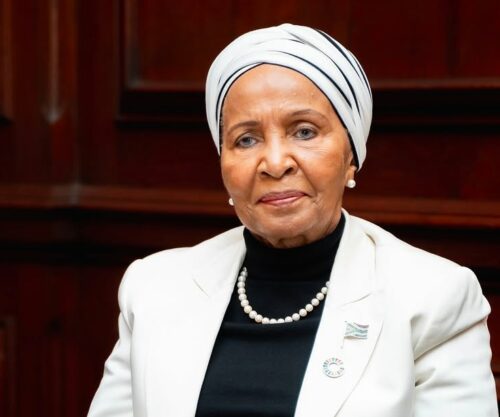
Some of the reactions to the Budget 2024 speech which was presented by Finance Minister Enoch Godongwana:
Frank Blackmore, Lead economist at KPMG
On the surface of it, it seemed as if this 2024 budget covered a lot of the bases, which were expected prior to the budget. We had increases on the pro-poor side for social grants, or be it very minor increases, for investors we’ve seen, and debt will peak at a lower percent of GDP, although it will increase in rand terms.
There are few changes to highlight on the expenditure side as usual increase public services education, safety and security, health etc. But also increases in those type of things that investors are interested in, such as the public sector wages of course, are being allocated more funding, as are debt service costs.
All in all, when we look at the objectives of the budget, it was supposed to support growth, very few new initiatives as far as growth is concerned specifically, the infrastructure requirements of the country, both logistical and electrical. All that we could see is a continuation of the policies that have been put in place, namely, to bring in the private sector – and it looks like that may go ahead this year even though it was tabled for the first time two budgets ago.
I think the biggest new talking point came on the revenue side where, besides the usual increases in sin taxes, there was no increase in fuel tax for the third year in a row, but income taxes increased, not in nominal terms, but real terms, because the adjustments to the income tax brackets were left as they were from last year.
The biggest impact, however, came from the R150 billion, which is coming from the contingency fund. So, what South Africa is doing here, is selling its assets to the tune of R150 billion to help plug the hole between the expenditure requirements and the revenue it collected.
All in all, I think it’s a much of a much budget. I hope the contingency fund isn’t going to be plundered from this point on, until there are no assets left in that fund, and that some discipline can come into the expenditure side of the budget, in order for the budget to mean something over the coming months.
Tanya Engels, Corporate Tax Partner, KPMG
From a corporate tax perspective, the Minister of Finance delivered a fairly uneventful budget today – not surprisingly since it is an election year and given the depressed economy, major shifts would not have been welcomed.
There were two things that stood out for me. The first is the proposed exclusion from the assessed loss limitation rules for companies that are in the process of being wound down. The assessed loss limitation rules came into effect for many companies in the 2023 tax year and we are really starting to see the impact of those now.
The second is the announcement that a draft global minimum tax bill will be published today. This will explain how South Africa plans to implement the so-called pillar-two rule which is the imposition of a global minimum tax of 15%. This has been long awaited given that a draft discussion document was already announced to be released in last year’s budget and so we look forward to seeing how National Treasury proposes to implement this.
Hayley Parry, Money Coach and facilitator at 1Life’s Truth About Money
It is Budget Day 2024 where finance minister has to balance the country’s books, as it were. So just like you and I need to look at our bank statements every month and work hard if we’ve spent less than we’ve earned, so too does government need to figure out what its financial house looks like. And unfortunately, it’s not looking terribly pretty – our income is down to R1.92 billion rand and expenditure is up to R2.26 billion – and the reason for this decline in revenue is that there’s been a 14% drop in corporate income tax and revenue from the mining sector has also halved over the last year.
And like I said, expenditure is up and one of the big line items in our national budget is our debt servicing costs which are R356 billion rand. To put it another way, for every R1 out of every R5 that we earn from our tax revenue, we are spending that on debt repayments. Now, if that sounds similar to your personal budget, what probably won’t is the next bit… so how is government managing to deal with this increase in in these rising debt costs, whilst we’ve got declining income? Well, they’re doing it through money from the gold and foreign currency contingency reserve account.
There is in fact R150 billion in there that they’re going to be using over the next three years, from our foreign reserve profits to reduce or lower our debt burden and stabilise it at 75% of GDP, which will be good for us going forward.
The other part of that is it also means that government has not raised personal income taxes or VAT rate, which is what some economists were suggesting might happen in order to help government balance the books. So, although there is no increase in personal income taxes, the bad news is that there has been no inflationary adjustment to income tax brackets either. And so what happens is something called bracket creep where if you get an increase linked to inflation around your salary, you may find yourself moving into a higher tax bracket and paying more tax in the coming year. So, something to look out for.
The other thing to be aware of is of course, that we always seem to need to pay more for sin taxes, those have increased above inflation. So, if you’re a smoker, you’ll be paying 97 cents more per pack of 26. And if you’d like a bottle of wine, which you might need, after this budget, you’re going to be paying 47 seven cents more for that bottle of wine.
Elizabeth Lombaard Partner Corporate Tax at KPMG South Africa
It’s exciting to note that the government is proposing an investment allowance of 150% for qualifying investments spent on production capacity for electricity and hydrogen powered vehicles coming into effect in 2026.
The government has given us no indication as to how it will be implemented but if the research and development incentive or the industrial investment policy project incentive is anything to go by, we expect that it will be a preapproval process that will be implemented. We would expect government to strictly control this allowance and incentive due to the amounts that are likely to be involved. Typically, the government would release a discussion paper quite some time in advance for public consultation and as KPMG we commit to making our clients aware of the intricacies of this new investment allowance.
Itumeleng Nkadimeng, Tax partner at KPMG Southern Africa specialising in business taxes
Following what would be the last budget of the 6th administration delivered by the honourable Finance Minister, Enoch Godongwana, corporate taxpayers may be considering the practical impact of the tax proposals presented from an operational perspective. As expected and noted in the budget speech improving tax compliance in order to increase revenue convictions remains a key focus. Therefore, taxpayers can just be detailed and further scrutiny into the tax compliance matters and the tax positions adopted.
In terms of the more technical proposals, a welcome proposal is in relation to the relaxation of the restrictions relating to the utilisation of assist losses in the context of companies that are dormant or in the process of being liquidated by exempting these companies from restrictions that may apply. This means that companies will be able to efficiently wound down operations in that the tax provisions were more adequately catered for the reality of the operational status of these companies without further tax leakage.
Importantly broadening of the tech space in the context of increased economic activity was truly noted. Overall, a well-considered balanced budget from the Finance Minister.
We look forward to hosting you at our annual KPMG budget event to be held on the 22nd of February where more detailed insights will be provided.
Also see:




